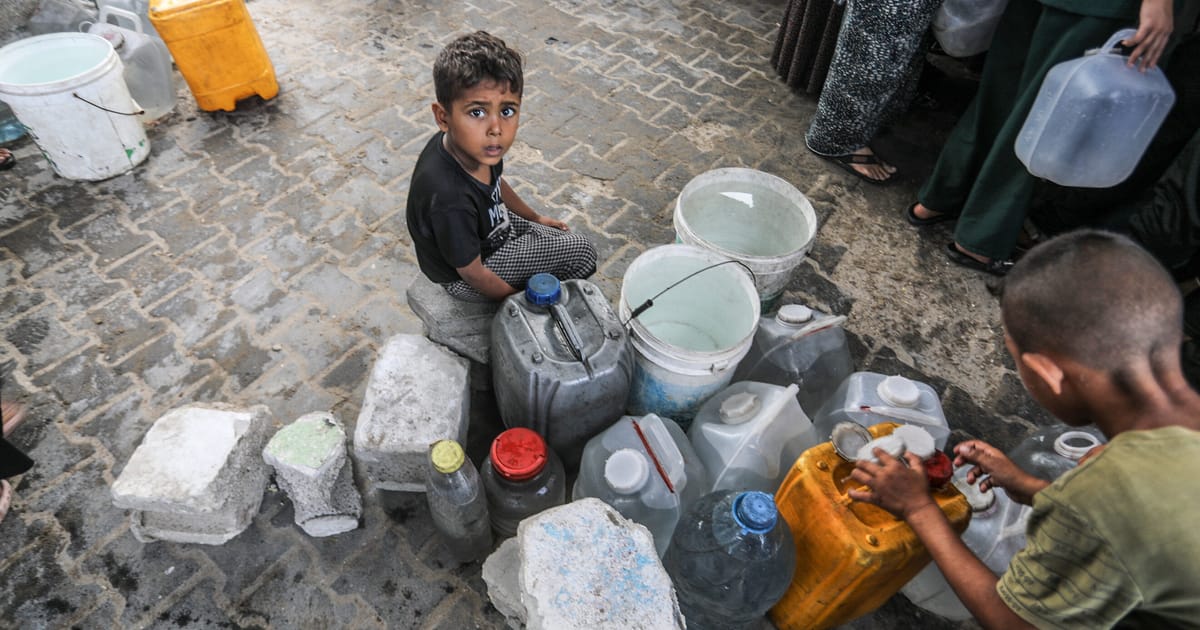

In recent days, the ongoing conflict in Gaza has led to a series of tragic events, accentuating the severe humanitarian toll endured by civilians in the region. The overarching narrative is one of deep compassion and continued calls for peace, amidst the backdrop of escalating tensions.
Reports from Gaza’s health ministry indicate a sobering increase in the toll from recent Israeli airstrikes, with over 58,000 individuals having lost their lives in the ongoing conflict, with women and children comprising more than half of these casualties. The devastating impact resonates deeply within the communities, prompting international dialogues and reassessment of diplomatic ties, notably among European Union leaders considering recalibrations in their relationship with Israel.
The path to this juncture involves significant across-the-board tragedy, including an airstrike on a water collection site in central Gaza. This incident, which claimed the lives of at least 19 people, involved innocent civilians, including six children, who were simply there to fetch water, a necessary yet perilous task given the circumstances. Witnesses describe the panic and chaos that ensued, a poignant reminder of the fragility faced by Gaza’s residents in their day-to-day existence.
The Israeli military acknowledged targeting a militant in the vicinity but attributed the unintentional impact on civilians to a technical discrepancy. An investigation into the incident is reportedly underway, highlighting the complexities and communication challenges that cloud the battlefield where civilian and military targets coexist in close quarters.
Elsewhere in Gaza, another airstrike on a residential home resulted in nine fatalities, comprising family members, among them women and children. This incident underscores the persistent, dire plight of Palestinian families attempting to maintain semblances of life amidst an environment rife with existential threats. The struggle for basic security and stability remains a central concern for those caught within this conflict.
The recent escalation also extends beyond Gaza to the occupied West Bank, where tensions have been heightened by violent encounters involving Israeli settlers and Palestinian residents. A particularly grievous case involved the tragic deaths of two young men, Sayfollah “Saif” Musallet, a Palestinian-American, and Razek Hussein al-Shalabi, a Palestinian resident. The confrontation at the heart of these losses underscores the multifaceted dimensions of the conflict, where personal histories and national narratives intersect.
Musallet’s tragic end on his family’s land, followed by a plea from his family for a U.S. State Department investigation, serves as yet another reminder of the global resonance and personal stories etched within the broad strokes of the geopolitical crisis. Communities mourn and remember those lost, celebrating their lives even amidst profound grief, with funeral processions and vocal protests of hope and calls for accountability.
In the ongoing quest for peace, such incidents have prompted renewed introspection among international circles. Diplomatic dialogues remain a vital part of a broader strategy striving for stability and the well-being of all civilians caught in this protracted conflict. European leaders stand poised to reassess diplomatic engagements, potentially opting for redefined relations that advocate human rights and humanitarian oversight vigorously.
Amidst active humanitarian concerns, local and international organizations continuously work to provide aid, support, and advocacy at a grassroots level, aiming to alleviate the burdens faced by countless families. These initiatives, driven by compassion and resilience, shape a narrative of hope, contributing to a larger vision for a peaceful resolution.
The need for empathetic engagement, constructive dialogue, and sustainable solutions is more pressing than ever. Invoking a mindful approach can foster understanding and pave the way for comprehensive, enduring peace, ensuring that future generations in this region may experience the tranquility and security long denied to their predecessors.
Source: {link}
